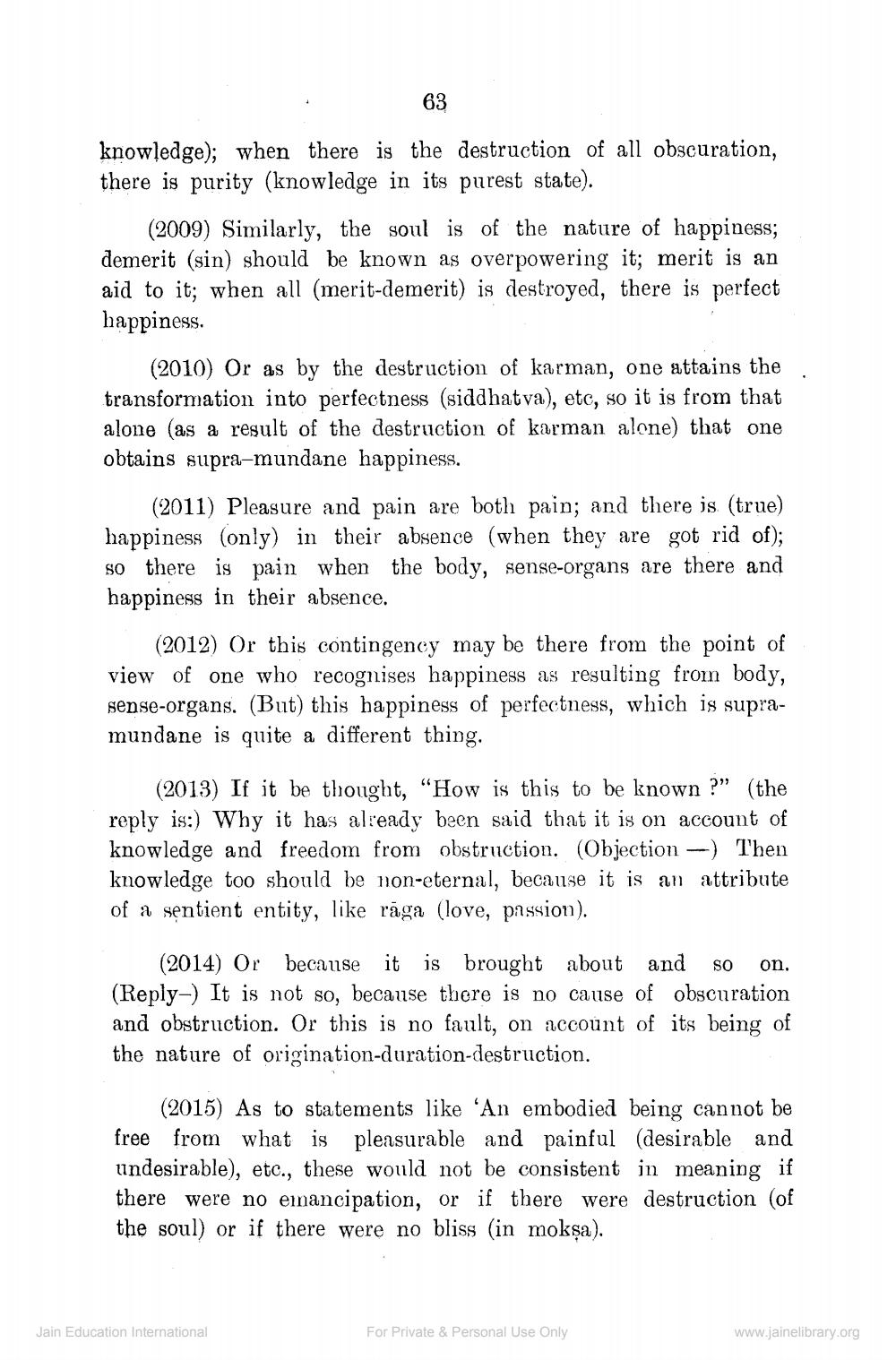________________
63
knowledge); when there is the destruction of all obscuration, there is purity (knowledge in its purest state).
(2009) Similarly, the soul is of the nature of happiness; demerit (sin) should be known as overpowering it; merit is an aid to it; when all (merit-demerit) is destroyed, there is perfect happiness.
(2010) Or as by the destruction of karman, one attains the transformation into perfectness (siddhatva), etc, so it is from that alone (as a result of the destruction of karman alone) that one obtains supra-mundane happiness.
(2011) Pleasure and pain are both pain; and there is (true) happiness (only) in their absence (when they are got rid of); so there is pain when the body, sense-organs are there and happiness in their absence.
(2012) Or this contingency may be there from the point of view of one who recognises happiness as resulting from body, sense-organs. (But) this happiness of perfectness, which is supramundane is quite a different thing.
(2013) If it be thought, "How is this to be known ?" (the reply is:) Why it has already been said that it is on account of knowledge and freedom from obstruction. (Objection -) Then knowledge too should be non-eternal, because it is an attribute of a sentient entity, like rāga (love, passion).
(2014) Or because it is brought about and so on. (Reply-) It is not so, because there is no cause of obscuration and obstruction. Or this is no fault, on account of its being of the nature of origination-duration-destruction.
(2015) As to statements like 'An embodied being cannot be free from what is pleasurable and painful (desirable and undesirable), etc., these would not be consistent in meaning if there were no emancipation, or if there were destruction (of the soul) or if there were no bliss (in mokșa).
Jain Education International
For Private & Personal Use Only
www.jainelibrary.org




